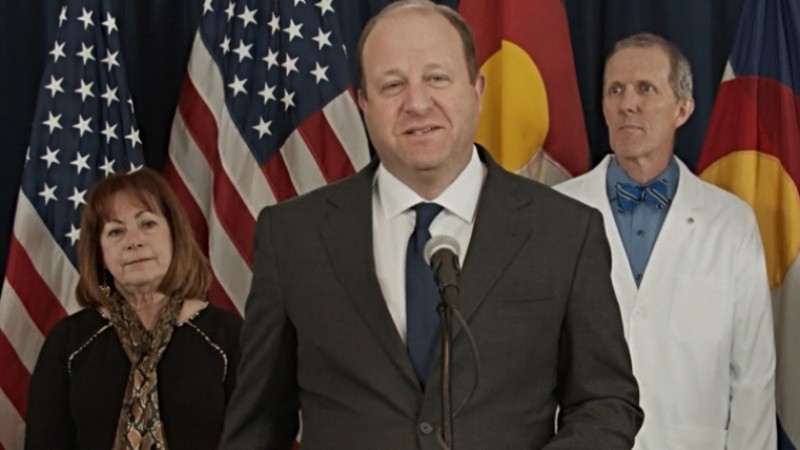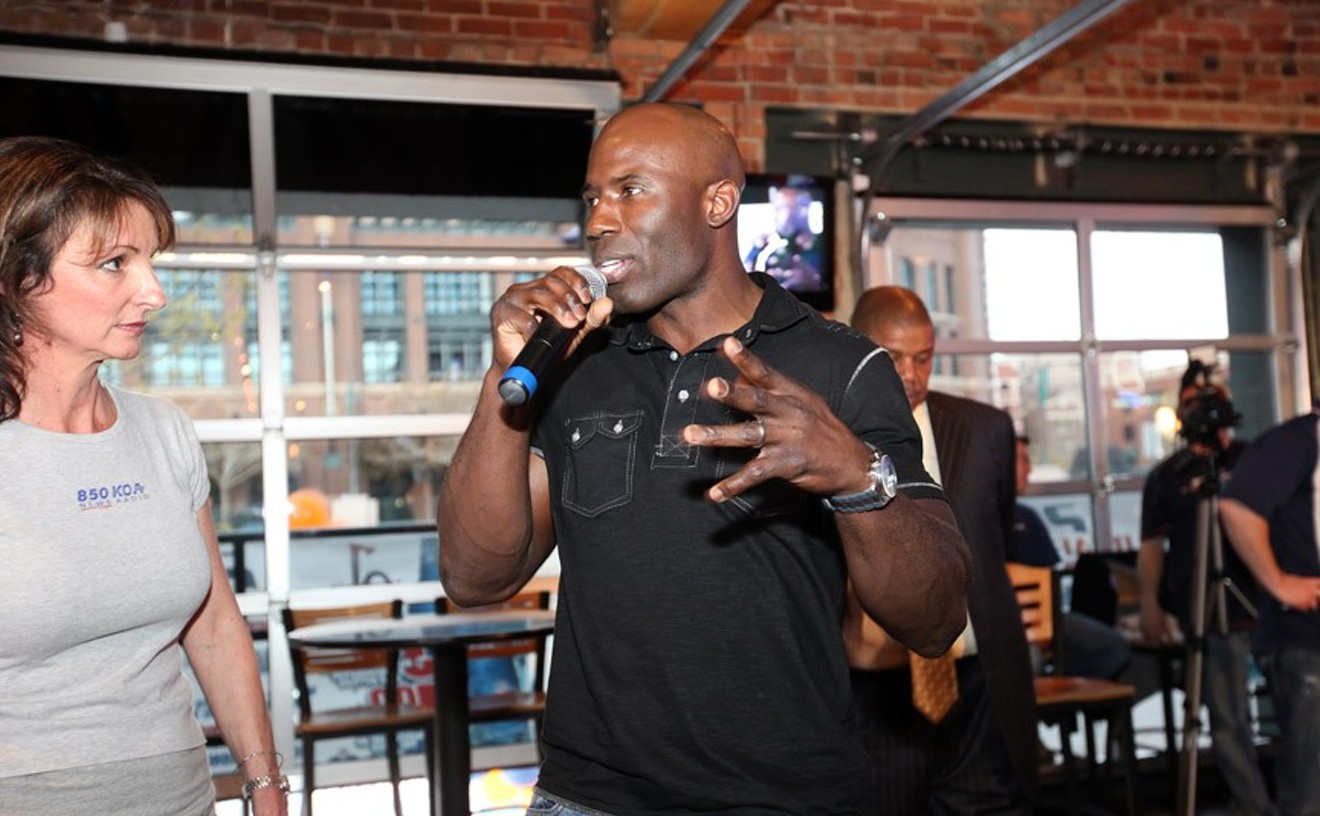Polis's answer to a question from a journalist about whether he's saying it's okay to go back to living life as normal could not have been simpler or less ambiguous. "Yes," he said.
The message had a familiar ring. On July 8, 2021, Polis delivered a video message in which he announced that he had rescinded all health emergency executive edicts regarding the virus in favor of what was dubbed the Colorado COVID-19 Disaster Recovery Order, branded as the "Colorado Comeback." During the clip, he managed to avoid using the phrase "mission accomplished," George W. Bush-style, but it had the tone of a victory declaration.
In the months that followed, two new variants of the disease, Delta and Omicron, caused COVID-19 case, hospitalization and death counts to spike again, necessitating a return to the sort of safety protocols and restrictions that Polis had suggested were no longer necessary. But as the numbers began falling again over the past month or so, he stopped appearing at regular press conferences updating the public on the virus's spread, and his reelection campaign announcement downplayed COVID in what appeared to be a very intentional way.
The process continued in the hours before today's media event. At 10 a.m., Polis's Facebook page posted a graphic reading "When We Work Together, We Move Forward: Colorado's Next Chapter" over the following text:
Last summer I declared an end to the public health emergency because we had the tools we needed and the systems in place to keep ourselves and our loved ones safe and avoid overcrowding our hospitals. But today I’m here to say that it’s time for us to turn the page.While at the podium, Polis, who was joined by Lieutenant Governor Dianne Primavera, Colorado Department of Public Health and Environment Executive Director Jill Hunsaker Ryan, CDPHE Incident Commander Scott Bookman and CDPHE Chief Medical Officer Dr. Eric France, directly quoted or paraphrased these remarks. He or his surrogates did the same with material from a press release labeled "Polis Administration Releases 'Colorado's Next Chapter: Our Roadmap to Moving Forward.'" Such email blasts have typically been sent out after press conferences ended, but this one arrived at 12:16 p.m., while Polis and company were still in front of cameras.
I’m not saying that it’s time to claim victory, because this virus will likely always be with us, but it is time to acknowledge that we have reached a point where Coloradans who are fully vaccinated can reasonably live freely and without fear. The virus isn’t gone, but Omicron has proven to be less severe, meaning that if you’re vaccinated and you do get sick, the likelihood is that you’ll be home for a few days with mild symptoms. You’ve done your part, Colorado, and you’ve more than earned the right to move beyond the pandemic. We’re here to help you do that.
Here are what the release describes as "the four main steps the state will be taking to maintain a level of preparedness and agility in order to keep Coloradans safe and healthy in the event of exacerbated or new public health challenges."
• Establishing Hospital Readiness Standards, Surge Planning and Normalizing COVID Patient Care in Traditional Medical Settings: Ensuring healthcare systems are prepared for future response efforts and normalizing COVID-19 treatment and prevention back into traditional healthcare settings.The explanations given for these moves included a CDPHE estimate that 90 percent of Coloradans have immunity against the most severe impact of COVID-19 (i.e., death) because they've either been immunized or achieved extra protection by contracting and surviving the disease.
• Ensuring Public Health Readiness and Surge Capacity: Building on lessons learned so the public health and emergency management fields can expand and contract for disease control and other emergency needs.
• Investing in Healthcare Workforce Stabilization and Expansion: Stabilizing the current workforce and building and maintaining a sustainable healthcare workforce for the future.
• Engaging the Federal Government in National Endemic Response, Pandemic Readiness and Needed Reforms: Striving for a national plan for pandemic readiness and response, and investing in the public health system, including an updated and interoperable national surveillance system, and flexible, non-categorical funding to allow flexibility and increase the public health workforce.
Various speakers acknowledged that a new variant might emerge that would necessitate changes in the current plans, and given uncertainty about how long vaccines remain effective, recommendations for people to get a fourth dose could be forthcoming. But as Polis stressed, "That time is not right now." And now is what is on his mind.
Continue to view the press conference:












